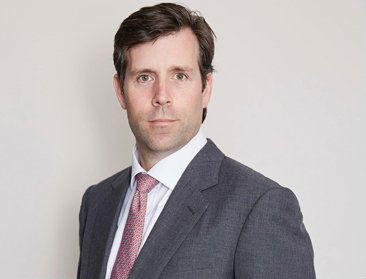Gramercy Europe’s CEO Alistair Calvert recounts the steps leading up to the buyout of the firm following Blackstone's takeover of its US parent GPT.
Earlier this year, when The Blackstone Group and New York-listed industrial specialist Gramercy Property Trust (GPT) got deep into takeover talks, Alistair Calvert spotted an opportunity. The CEO of Gramercy Europe, who had sold his company ThreadGreen Europe to GPT four years earlier, had been running the firm’s European strategies and now recognised a chance to buy it back as the ‘natural owner’ of the business.
It was May 2018 when Blackstone announced its $7.6 bn (€6.7 bn) deal for GPT, which meant months of a blackout period thereafter. However, behind the scenes Calvert had consulted various people and concluded he should try to acquire Gramercy Europe from Blackstone when its deal completed.
Last month saw the conclusion of those talks as Blackstone completed its acquisition of GPT, which included Gramercy Europe, and Calvert and senior management in turn agreed to buy Gramercy Europe from Blackstone for an undisclosed price.
Calvert and partners signed their deal at 5.30 pm on Wednesday 11 October – the day after Blackstone completed its takeover. There has been no comment from Blackstone as to why it was happy to sell Gramercy Europe to its management team, so the reasons for that remain speculative. They range from Gramercy Europe being unnecessary to its ongoing European real estate investment activities to the firm presenting a conflict of interest given Blackstone’s other logistics exposure.
However, what is clear is why Calvert was interested. From his perspective, this was an opportunity too good to miss. ‘I talked to friends and family about it and quickly concluded that I had to find a way to buy it,’ Calvert recounts. ‘It just felt right. It was an opportunity I didn’t want to pass up. I was very lucky to be in a position to be able to buy out a manager that is doing the one thing that everybody else wants at this time – European logistics being the flavour of the month.’
Calvert, an entrepreneur, started industrial and logistics specialist ThreadGreen Europe in 2006 when the logistics and warehouse sector was nowhere near as popular as it is now. He managed the company for eight years before selling it for an undisclosed price to GPT in 2014. Since then, the team has transacted around €2.5 bn of deals.
Immediate next steps
Under GPT’s umbrella, the firm has been busy investing capital from Gramercy Europe III. That fund was quickly raised in a two-month window in 2017, collecting €260 mln of equity. At that level, the firepower of the fund was €650 mln, given 60% leverage.
Calvert says that over half the equity from Fund III has been drawn, and another 30% is allocated to fresh deals. With 20% left – or around €100 mln – this means the company should be in a position to close a fourth vehicle in Q1 of 2019. The firm is seeking around €400 mln of equity, which with gearing will provide up to €1 bn of firepower.
As CEO of the newly independent firm, Calvert does not believe that raising fresh capital is the main challenge. The real challenge, he explains, is finding value - though he insists it does exist if one looks in the right places, as the French portfolio acquisition demonstrated.
This year, it has managed to close on €350 mln of acquisitions and it hopes to have completed €500 mln by year-end. ‘But it is harder and harder to find value,’ he admits. ‘What we are doing now is increasingly buying shorter leases and taking on more development. The reason for this is that the market for assets with longer lease structures is getting very crowded. We are finding less competition for the smaller transactions. We are managing to find assets with shorter lease terms where we can create value by re-gearing the leases quickly.’
He adds: ‘While the investment market has become more challenging, the occupational market has become tight. There is a lack of logistics space. Occupiers know that incentives are disappearing and rents are going up. The real shift in the last year has been in negotiating power from the tenants to the owners. Over the last 10 years, when it has come to lease renewals, landlords have not been benefitting from any rental growth. Tenants now realise there is very little vacancy in the market and when it comes to renewal time the landlord has much more control over the negotiation. This results in creation of value at the asset level. Whist yields have compressed fast, it is being sustained by rental growth and the ability to re-gear leases.’
The firm would not comment on the profile of investors in its new vehicle or whether The Townsend Group is expected to invest again. Since its participation in Fund III, Townsend – which represents more than 100 institutional investors – has been acquired by AON for £350 mln. But as everyone knows in Europe, there is no shortage of institutional demand for most types of industrial and logistics property, and this provides Calvert with confidence.‘We have a really good track record in a sector that people find difficult to access,’ says Calvert. ‘The buyout provides us with a strong platform that we feel can grow into a much bigger asset management business.’
Gramercy’s milestone French deal
A significant milestone was achieved in June this year when Gramercy Europe acquired a €175 mln portfolio of assets in France, a strongly performing and fast-growing European logistics market. A few months earlier, the company had decided to target more French investments and found a willing seller in London-based Tristan Capital Partners. The portfolio spanned seven buildings of around 282,700 m2, with the potential for 59,000 m2 of additional development. Tenants in the portfolio included Auchan, ID Logistics, Michelin, Conforama, and Burton. Gramercy acquired the portfolio on behalf of Gramercy Europe III, a fund that finished fundraising towards the end of 2017 backed by The Townsend Group along with clients of Townsend. Tristan originally acquired the assets via its fund Curzon Capital Partners IV Fund (CCP IV) from Prologis and ID Logistics.

































